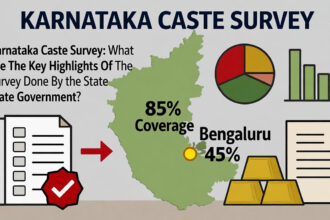The 8th Pay Commission is poised to bring significant changes to the compensation structure of central government employees and pensioners in India. While its implementation is anticipated around January 1, 2026, the exact timeline may vary based on government decisions and budgetary considerations.
Implementation Timeline
Although the 8th Pay Commission is expected to be effective from January 1, 2026, official announcements and budget allocations are still awaited. The government has approved the formation of the commission, but specific details regarding its implementation remain pending.
Expected Salary Revisions
🔢 Fitment Factor
The fitment factor is a multiplier applied to the existing basic pay to arrive at the revised salary. Under the 7th Pay Commission, this factor was set at 2.57. For the 8th Pay Commission, proposals suggest increasing it to between 2.86 and 3.00, leading to a substantial hike in basic pay.
💰 Minimum Basic Pay
If a fitment factor of 2.86 is adopted, the minimum basic salary could rise from ₹18,000 to ₹51,480. With a factor of 3.00, it could increase to ₹54,000.
📊 Pay Matrix Adjustments
The pay matrix, which outlines salary structures across various levels, will be updated to reflect the new basic pay and fitment factor. For instance, at Level 1, the basic pay could increase from ₹18,000 to ₹54,000, depending on the final fitment factor.
🧓 Pension Revisions
Pensioners are also set to benefit from the 8th Pay Commission. With the proposed fitment factor, the minimum pension could increase from ₹9,000 to ₹25,740. This adjustment aims to provide better financial security to retirees.
💼 Allowances and Benefits
🏠 House Rent Allowance (HRA)
HRA is expected to be revised in line with the new basic pay, potentially leading to higher allowances for employees.
🚗 Transport Allowance (TA)
TA will likely be adjusted to reflect the increased basic pay, providing additional support for commuting expenses.
🏥 Medical and Education Allowances
Allowances related to medical expenses and children’s education may also see revisions, enhancing the overall benefits package for employees.
📊 Economic Implications
The implementation of the 8th Pay Commission is anticipated to have several economic impacts:
- Increased Consumer Spending: Higher salaries and pensions may boost consumer spending, stimulating economic growth.
- Enhanced Tax Revenue: With increased incomes, tax collections could rise, providing additional resources for government initiatives.
- Improved Employee Morale: Better compensation packages can lead to higher job satisfaction and productivity among government employees.
Conclusion
The 8th Pay Commission is set to bring significant enhancements to the compensation and benefits of central government employees and pensioners. While the exact implementation date and details are yet to be finalized, the proposed changes aim to align salaries with current economic conditions and improve the financial well-being of government personnel.





